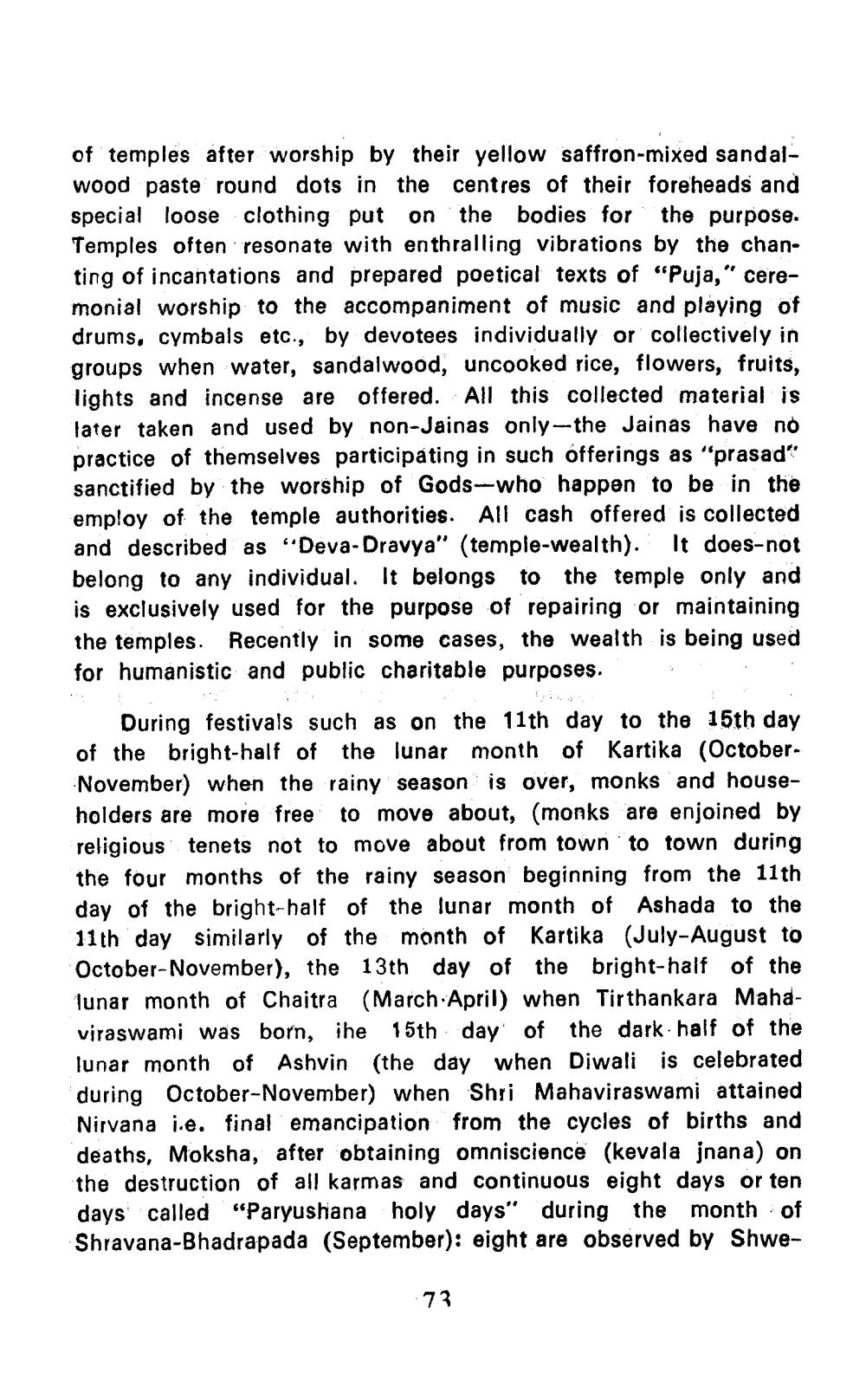________________
of temples after worship by their yellow saffron-mixed sandalwood paste round dots in the centres of their foreheads and special loose clothing put on the bodies for the purpose. Temples often resonate with enthralling vibrations by the chanting of incantations and prepared poetical texts of "Puja," ceremonial worship to the accompaniment of music and playing of drums, cymbals etc., by devotees individually or collectively in groups when water, sandalwood, uncooked rice, flowers, fruits, lights and incense are offered. All this collected material is later taken and used by non-Jainas only-the Jainas have no practice of themselves participating in such offerings as "prasad" sanctified by the worship of Gods-who happen to be in the employ of the temple authorities. All cash offered is collected and described as "Deva-Dravya" (temple-wealth). It does-not belong to any individual. It belongs to the temple only and is exclusively used for the purpose of repairing or maintaining the temples. Recently in some cases, the wealth is being used for humanistic and public charitable purposes.
During festivals such as on the 11th day to the 15th day of the bright-half of the lunar month of Kartika (OctoberNovember) when the rainy season is over, monks and householders are more free to move about, (monks are enjoined by religious tenets not to move about from town to town during the four months of the rainy season beginning from the 11th day of the bright-half of the lunar month of Ashada to the 11th day similarly of the month of Kartika (July-August to October-November), the 13th day of the bright-half of the lunar month of Chaitra (March-April) when Tirthankara Mahaviraswami was born, ihe 15th day of the dark half of the lunar month of Ashvin (the day when Diwali is celebrated during October-November) when Shri Mahaviraswami attained Nirvana i.e. final emancipation from the cycles of births and deaths, Moksha, after obtaining omniscience (kevala jnana) on the destruction of all karmas and continuous eight days or ten days called "Paryushana holy days" during the month of Shravana-Bhadrapada (September): eight are observed by Shwe
73




